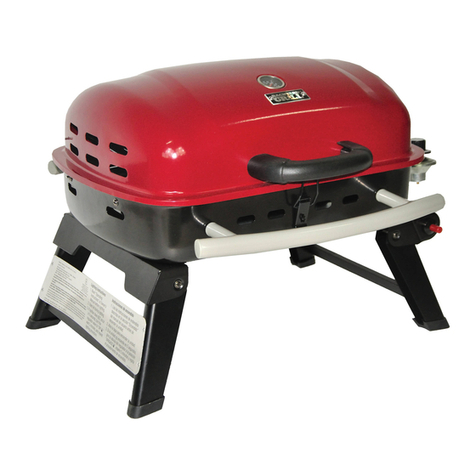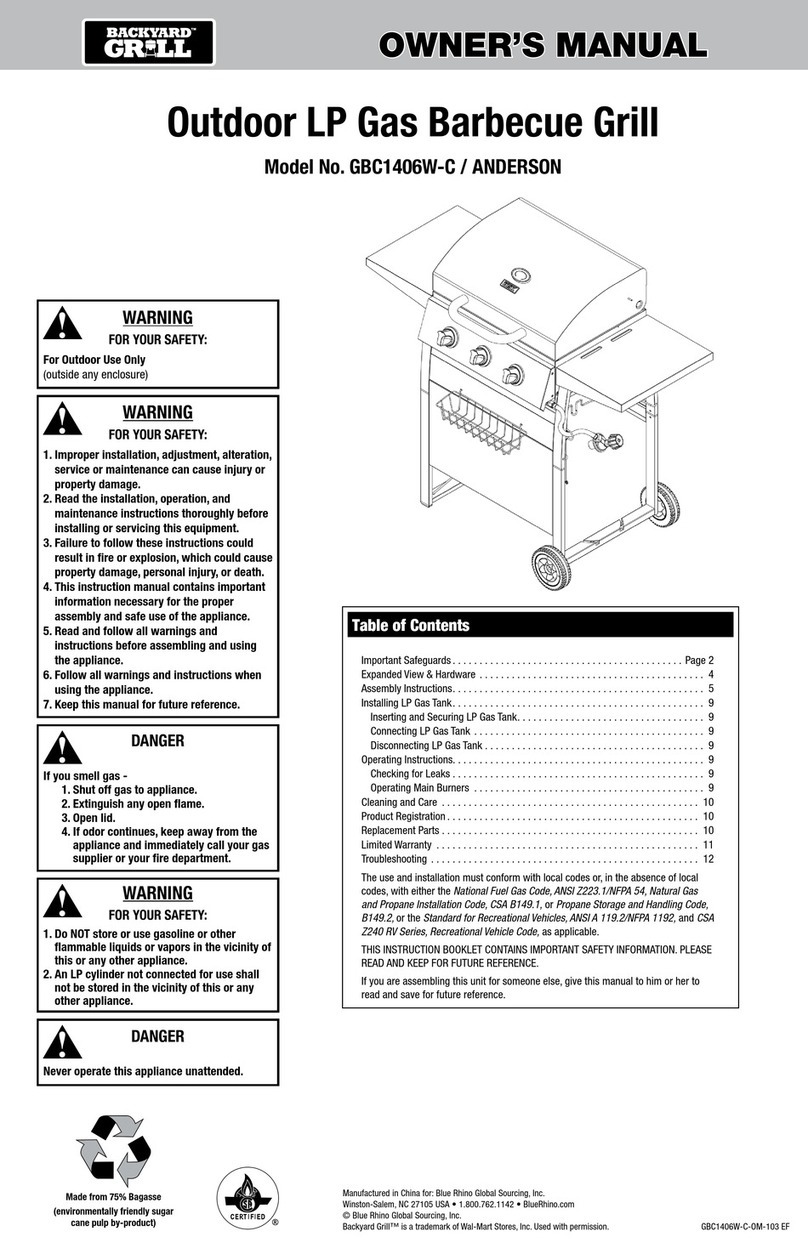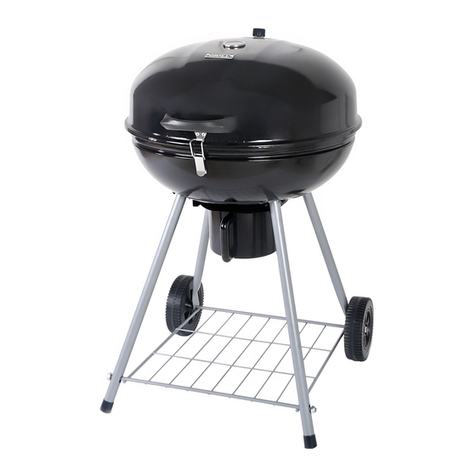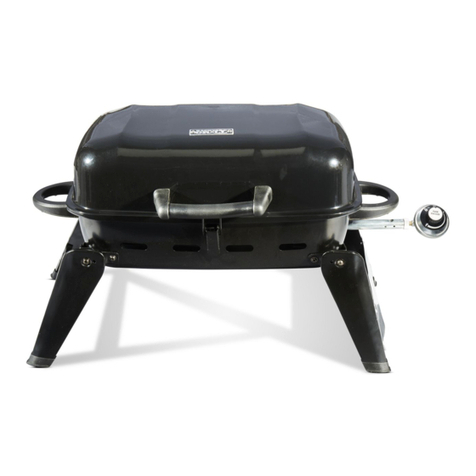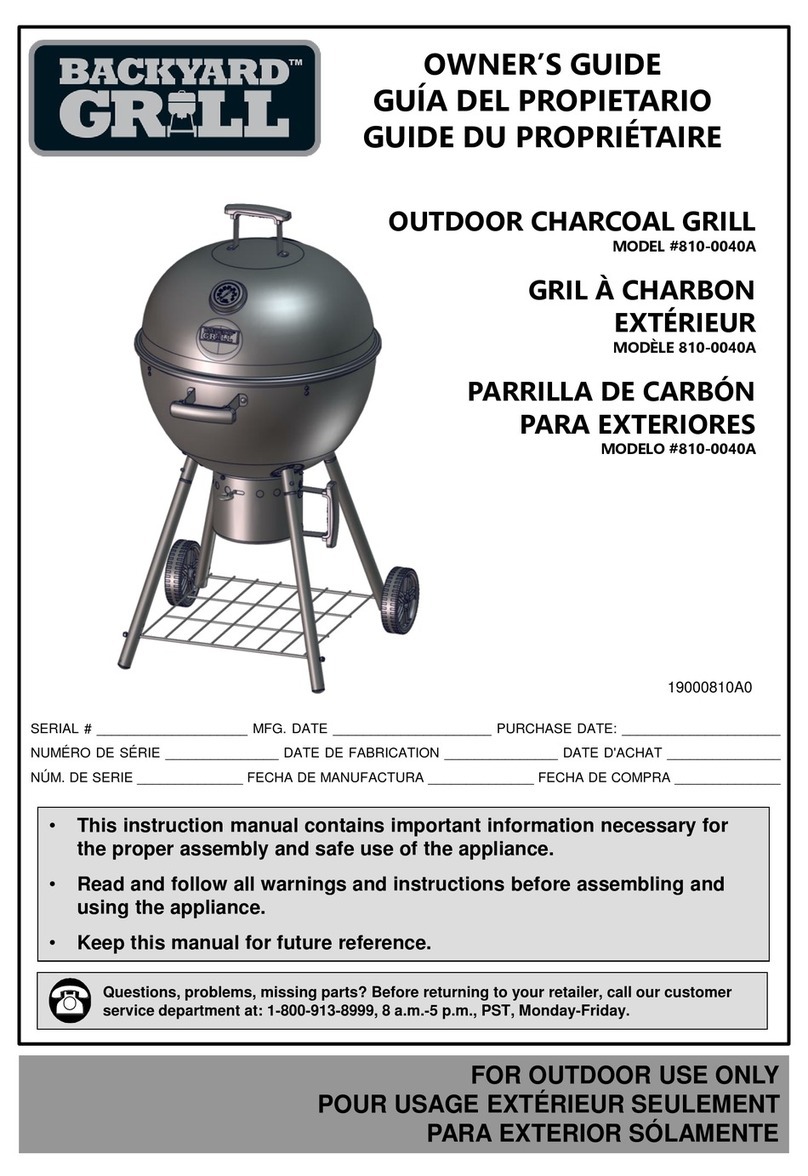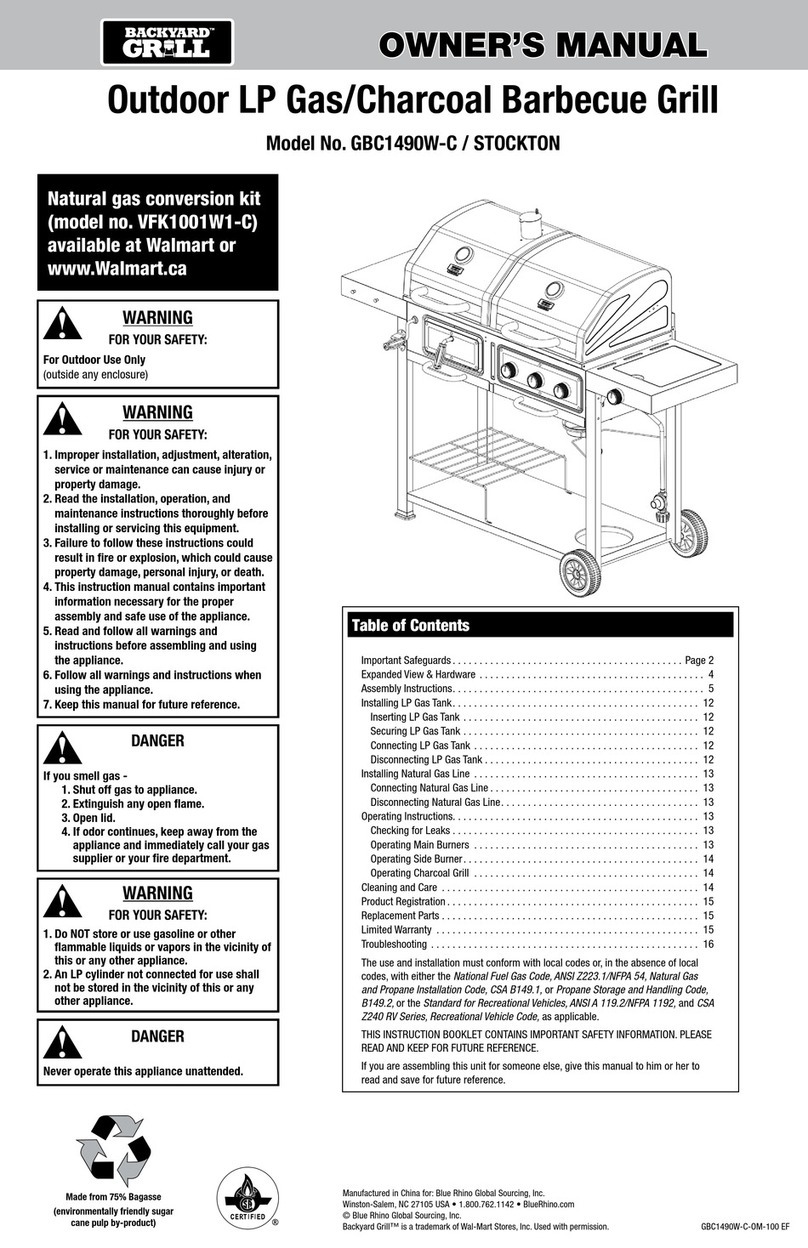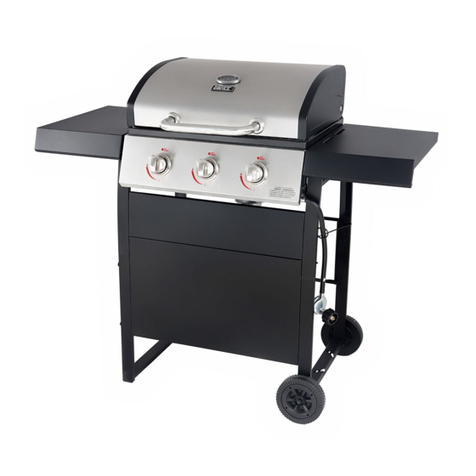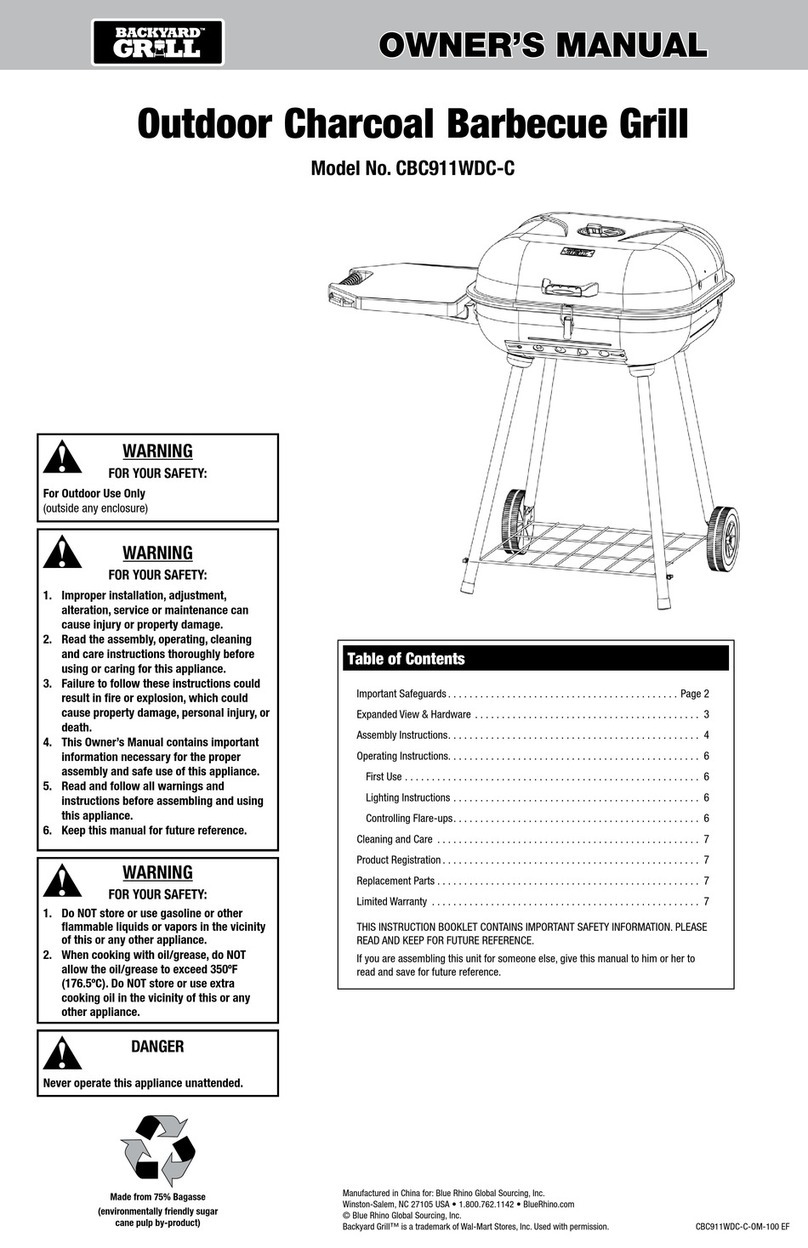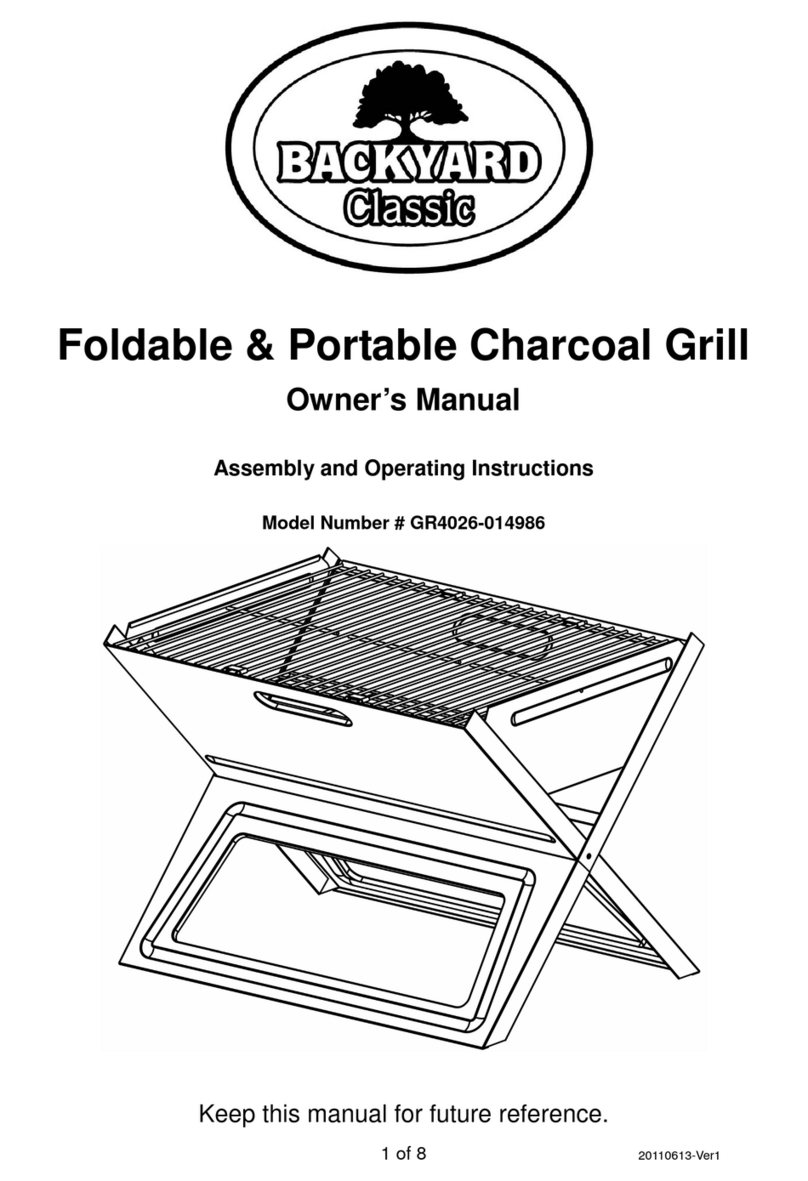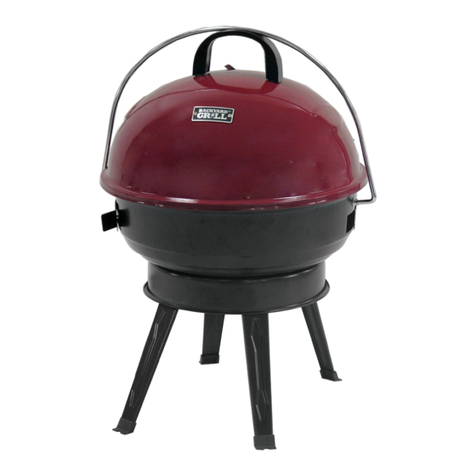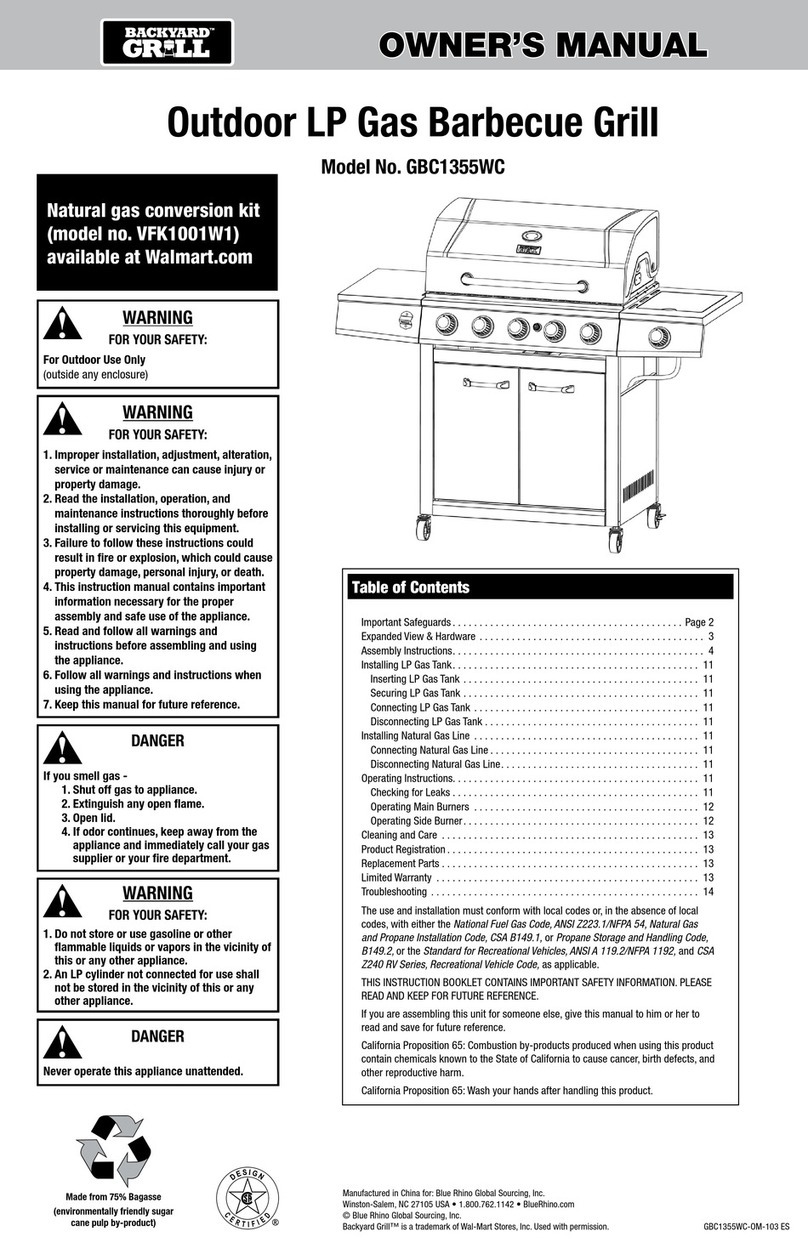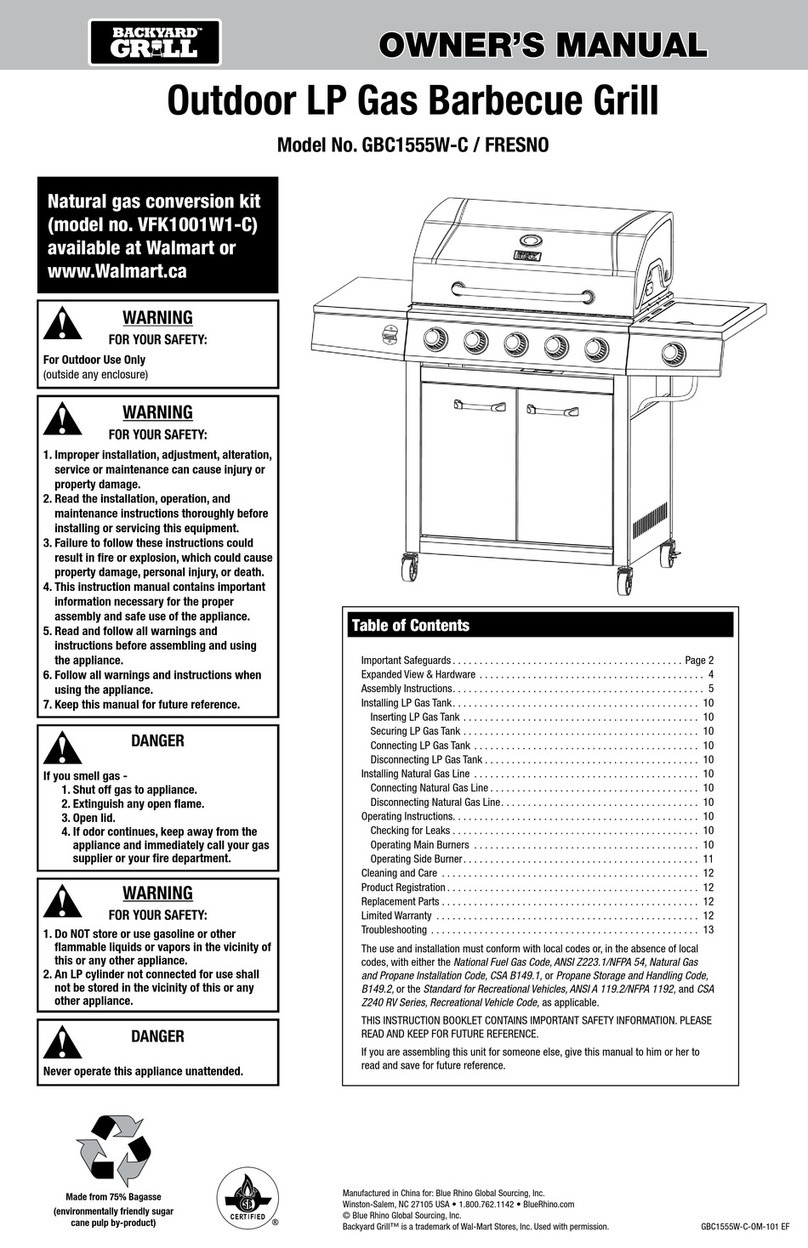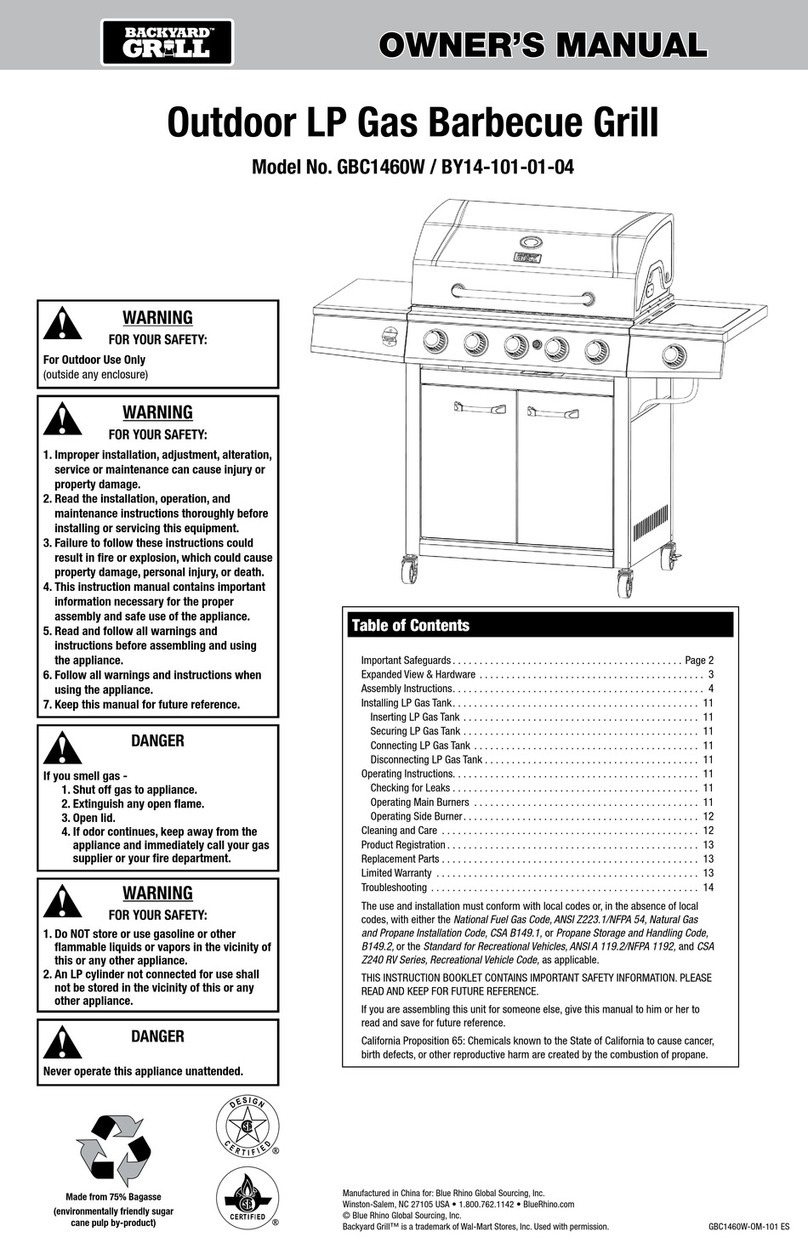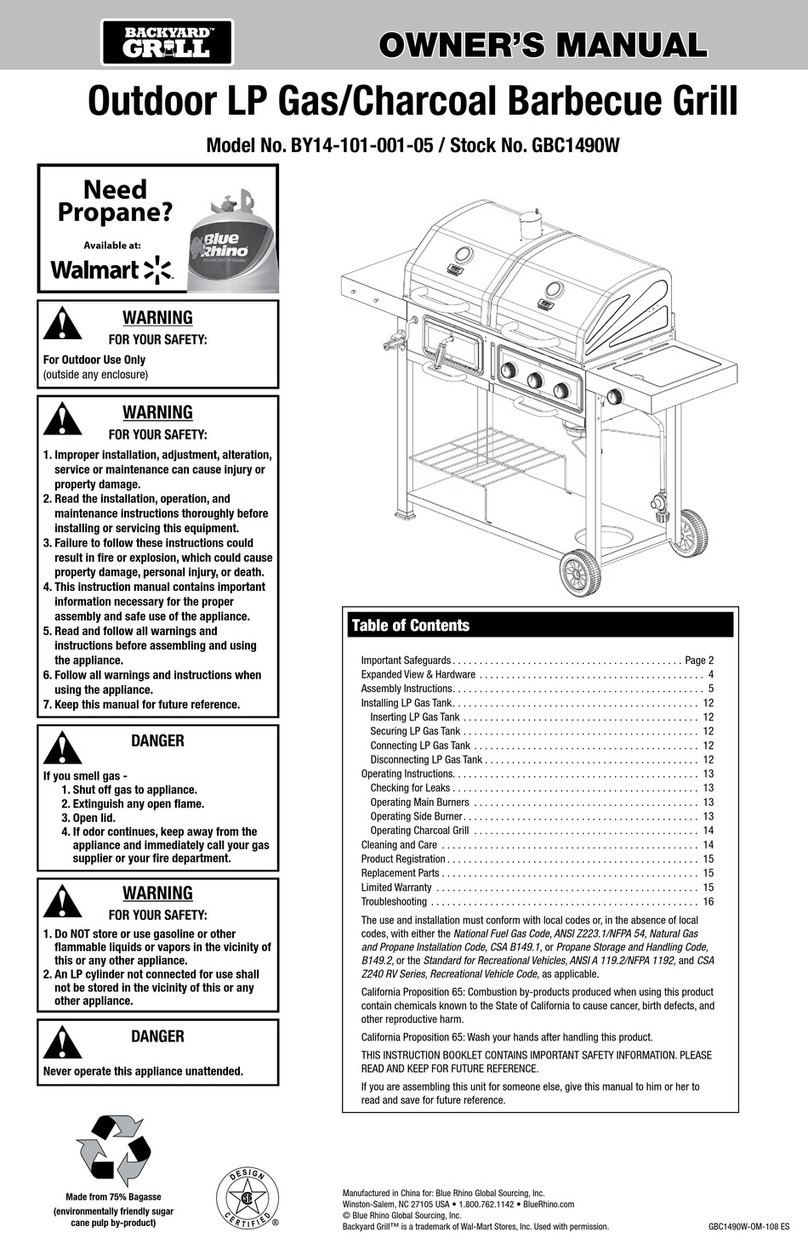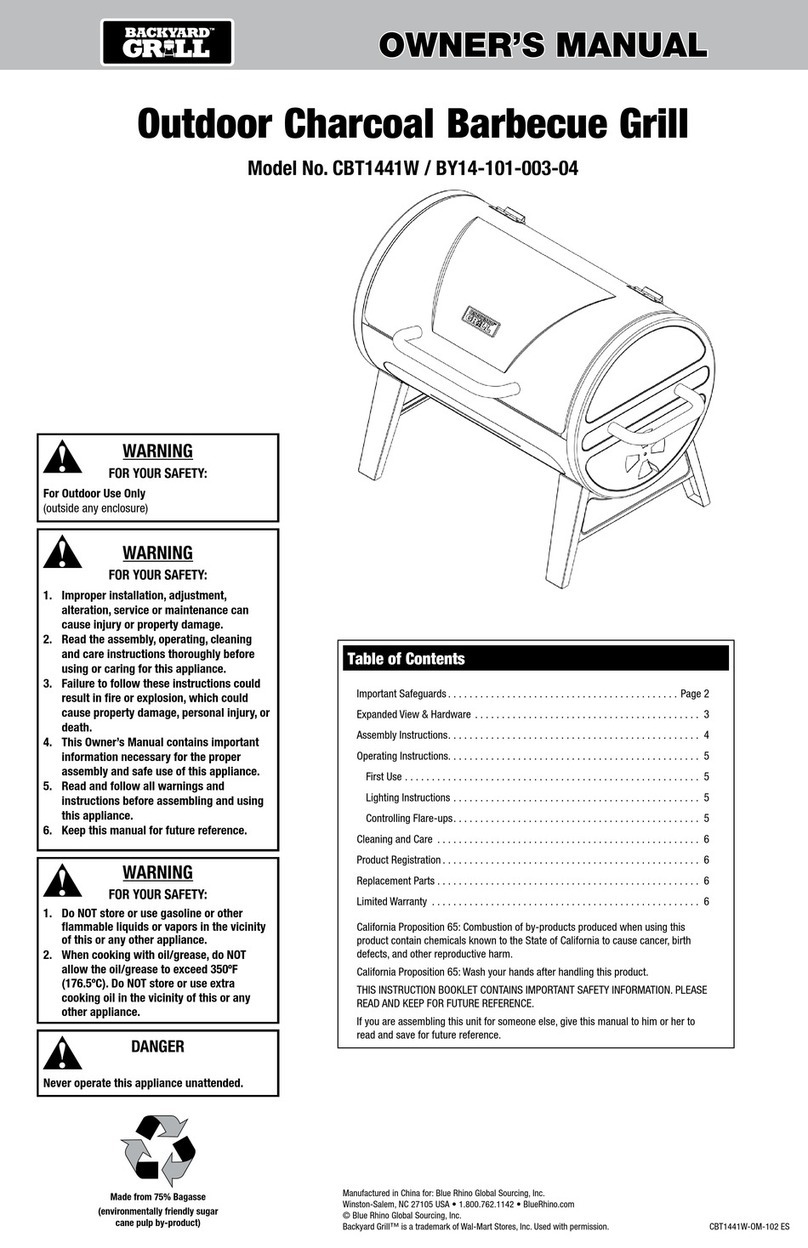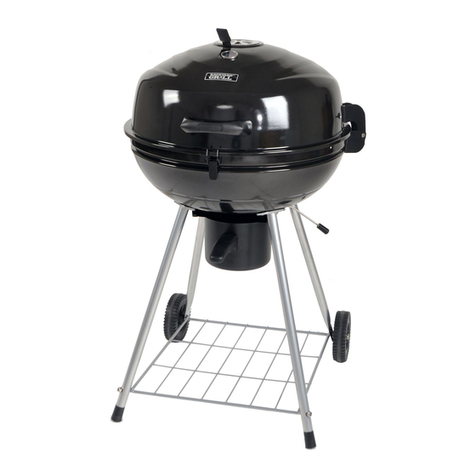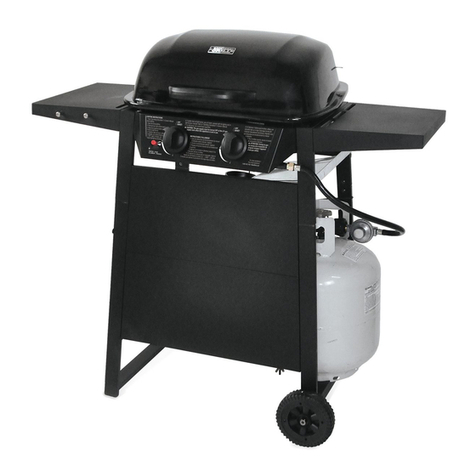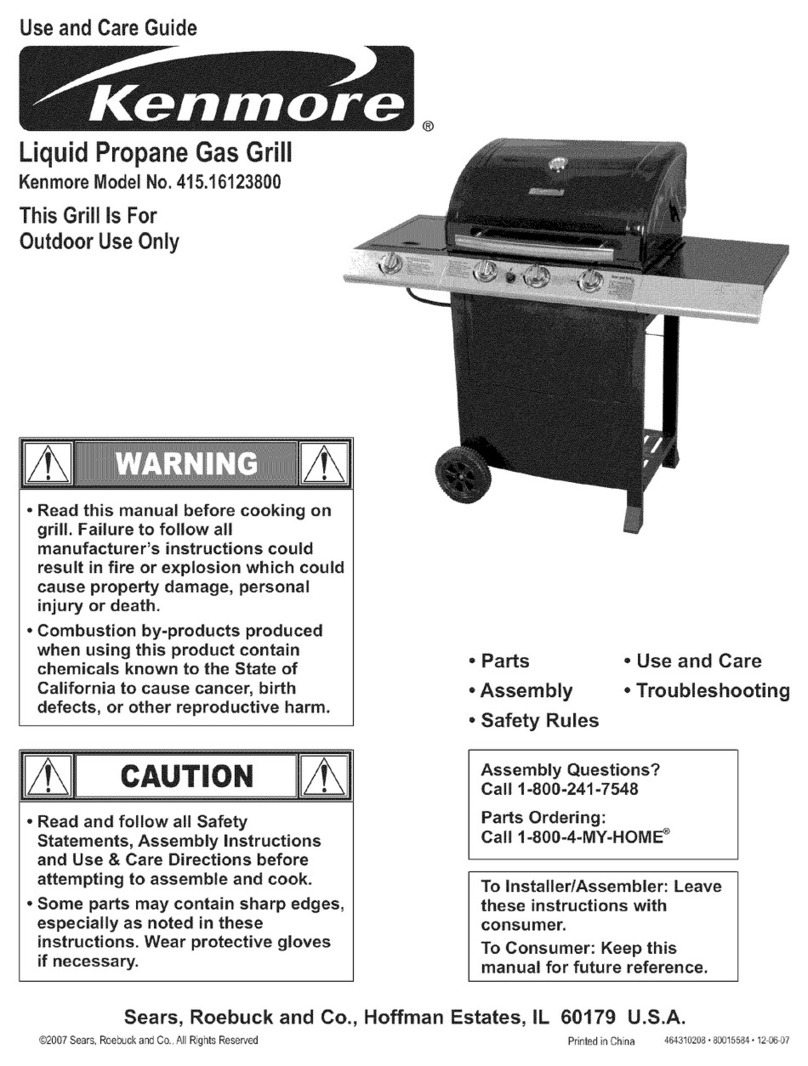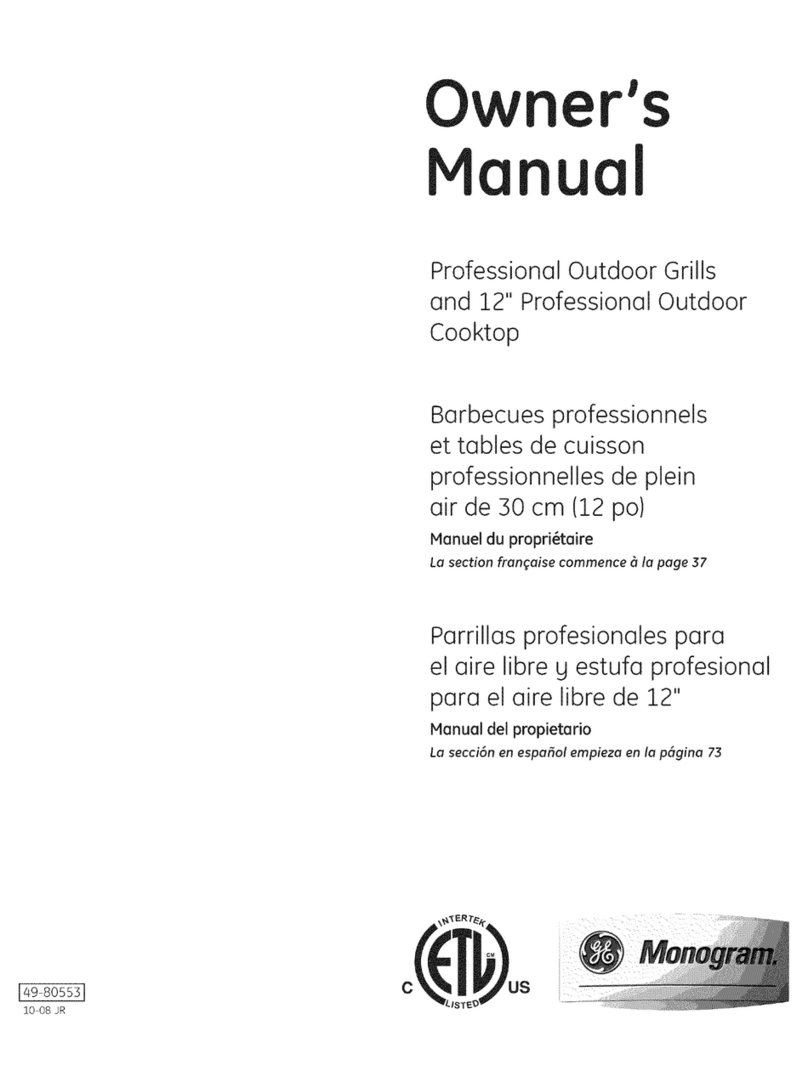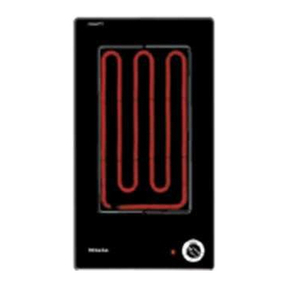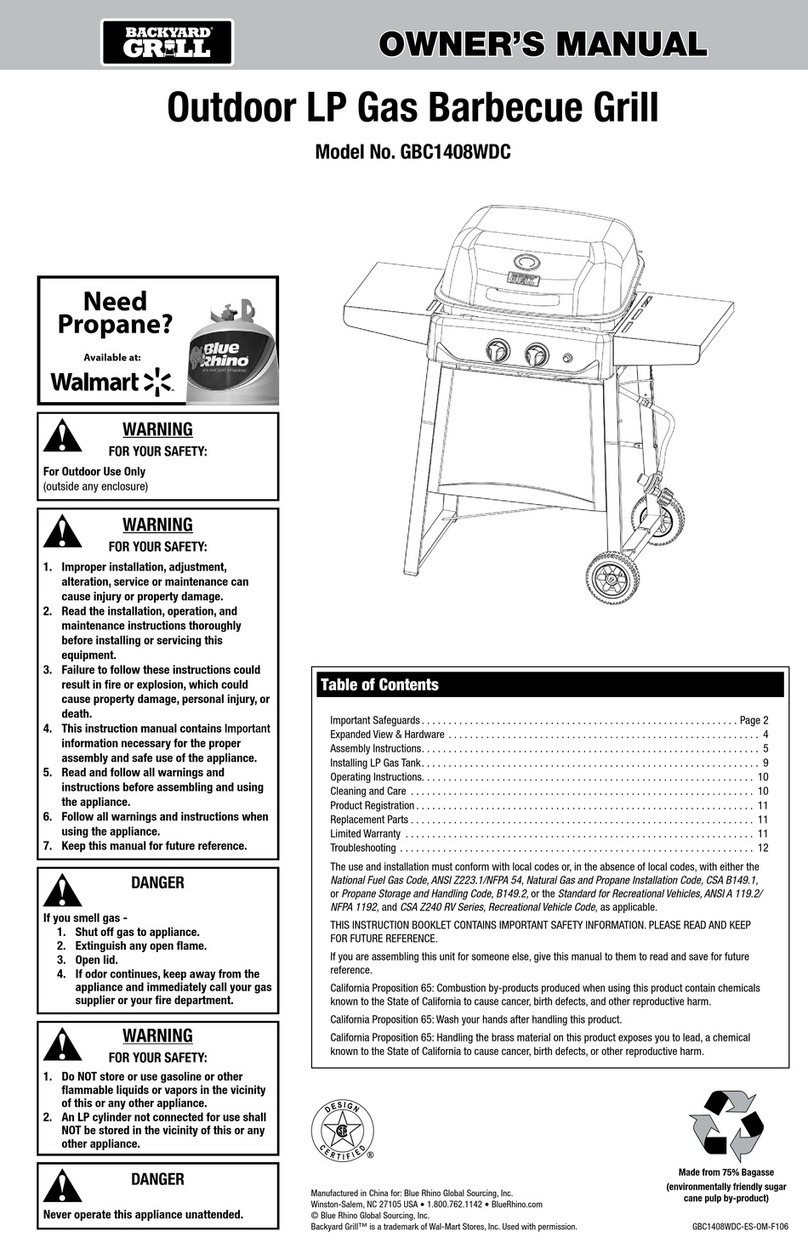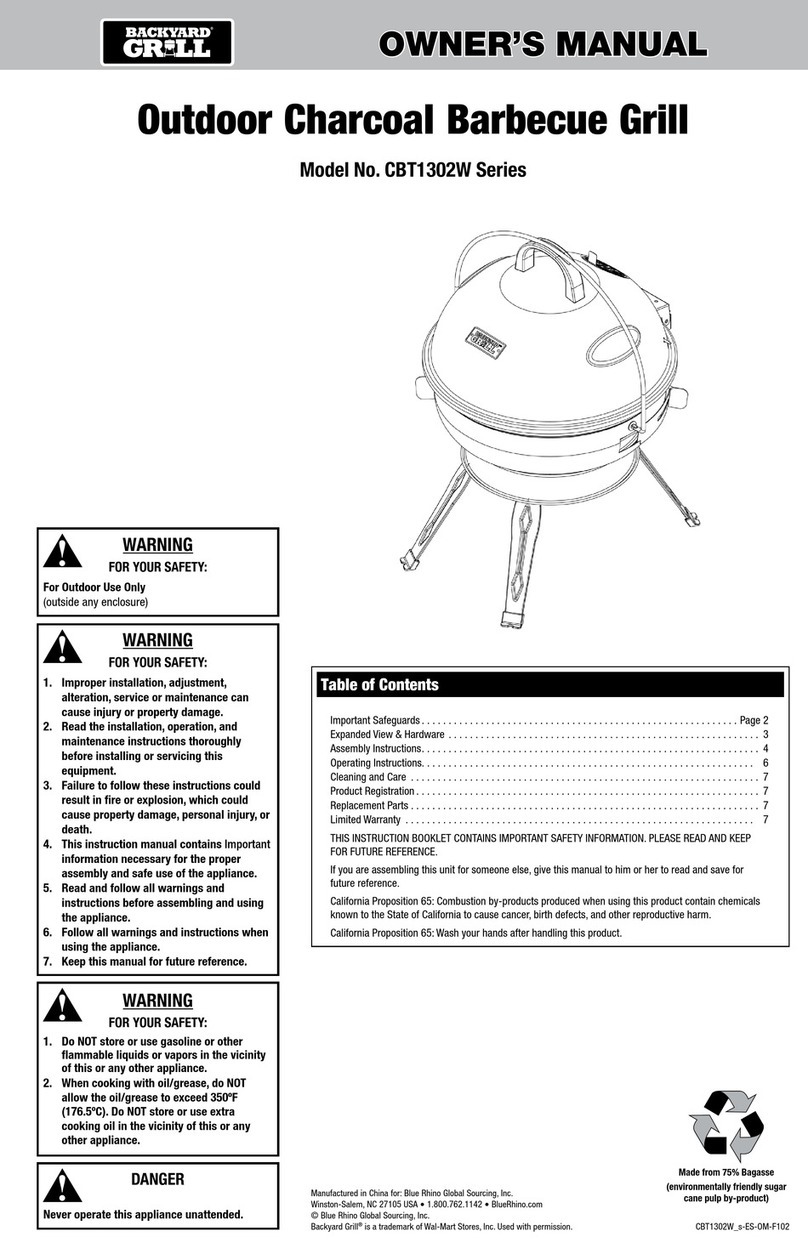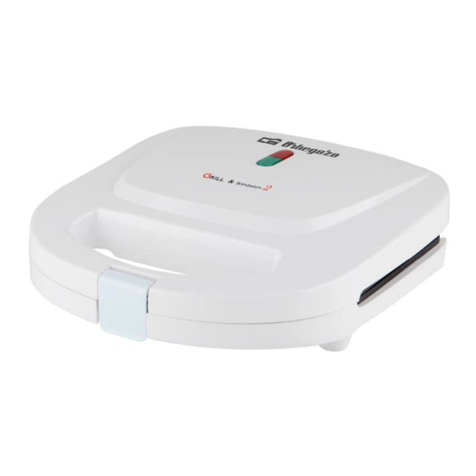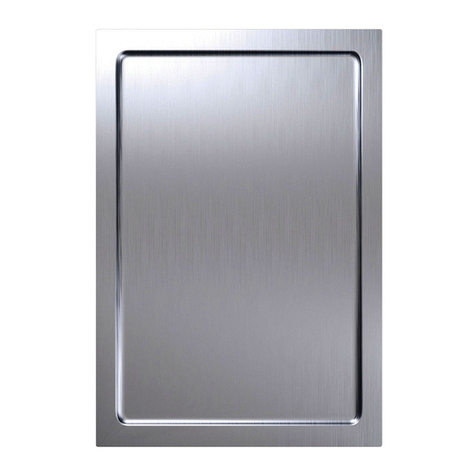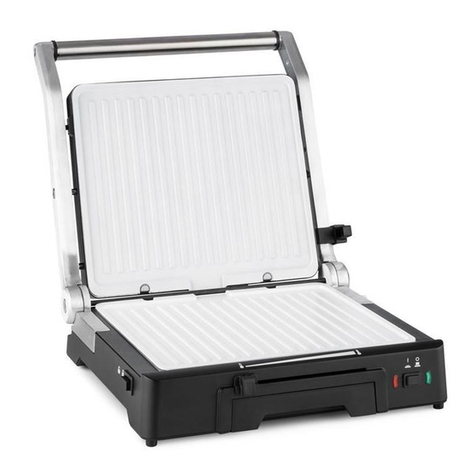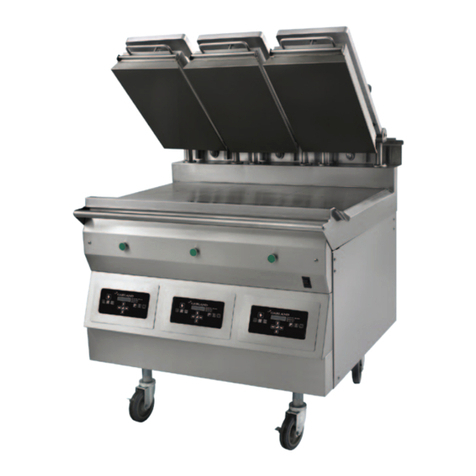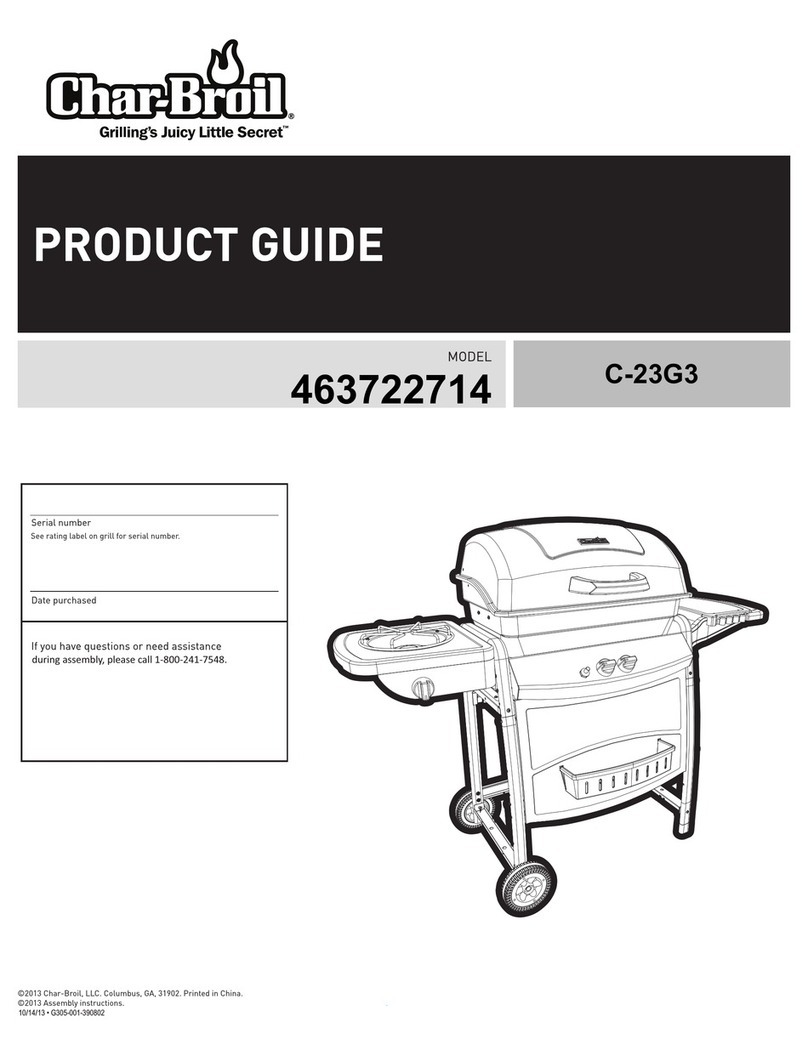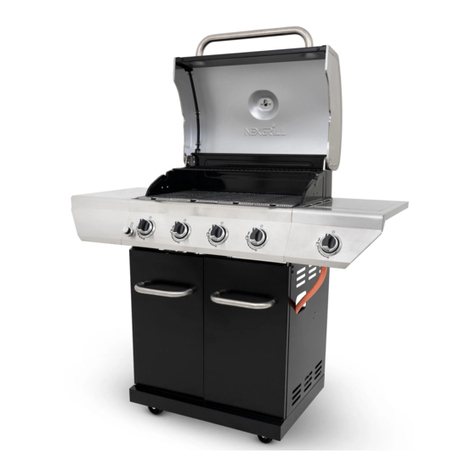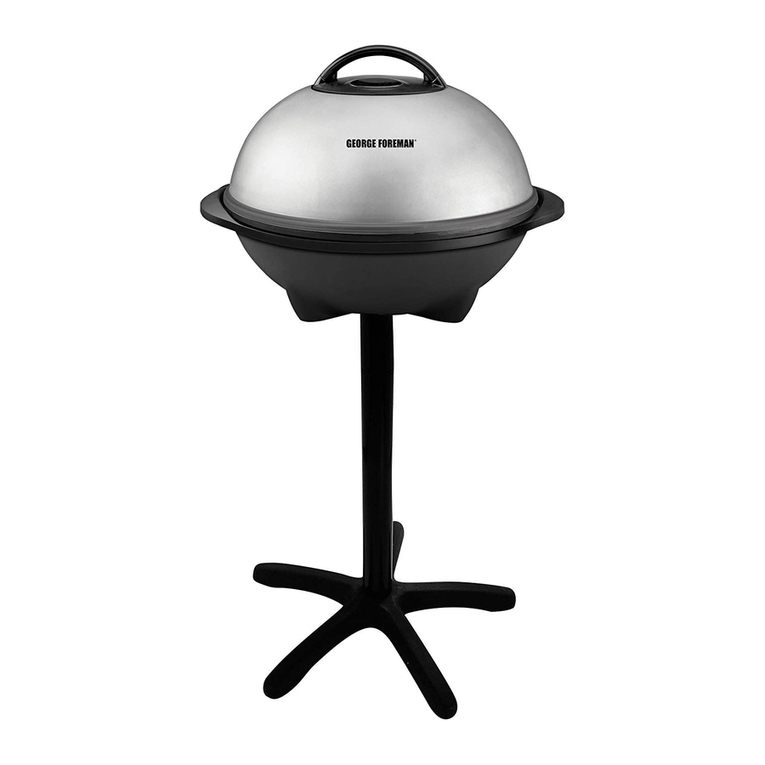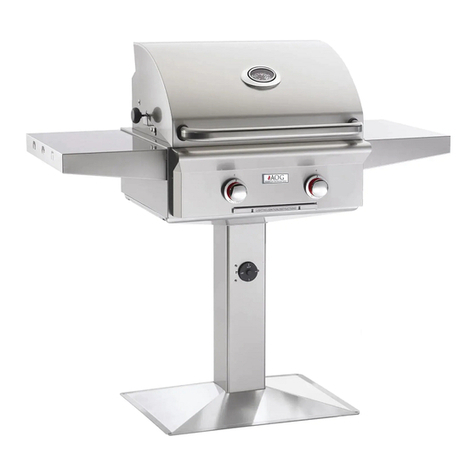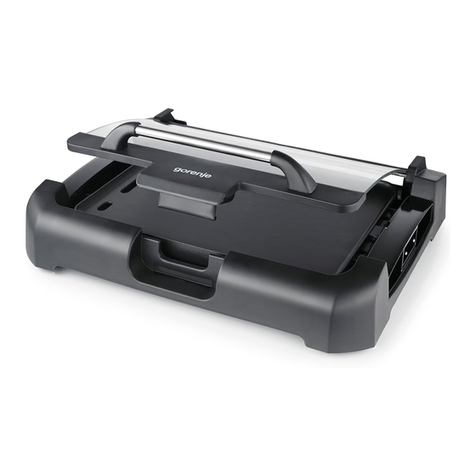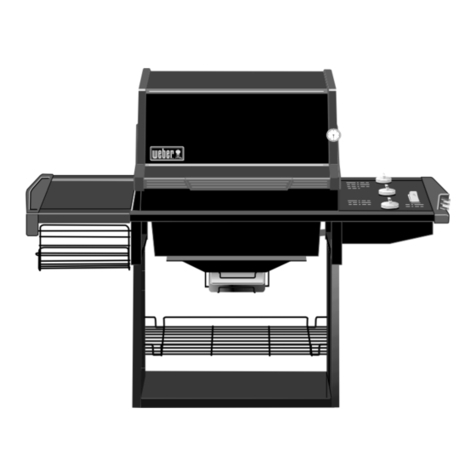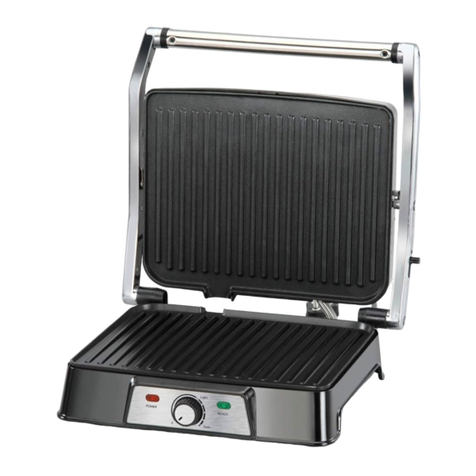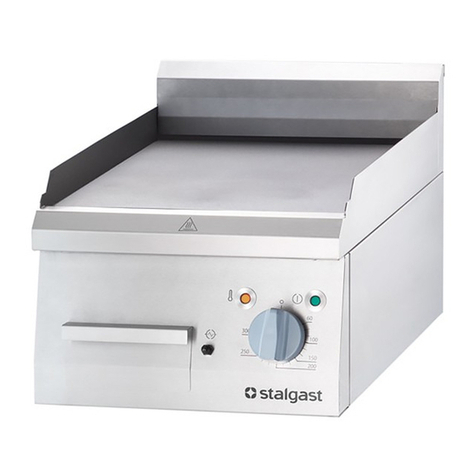
3
IMPORTANT SAFEGUARDS
WThe LP gas cylinder must be constructed and marked in accordance with the Specifications for LP-gas
Cylinders of the U.S. Department of Transportation (D.O.T.) or the National Standard of Canada, CAN/
CSA-B339, Cylinders, Spheres and Tubes for the Transportation of Dangerous Goods; and Commission.
WLP gas cylinder must be arranged for vapor withdrawal.
WThe LP gas cylinder must have a listed overfilling prevention device (OPD).
WOnly use LP gas cylinders equipped with a cylinder connection device compatible with the connection for
outdoor cooking appliances.
WThe LP gas cylinder must have a cylinder collar to protect the cylinder valve.
WNever use a LP gas cylinder with a damaged body, valve, collar or footing.
WDented or rusted LP gas cylinders may be hazardous and should be checked by your LP gas supplier prior to
use.
WThe LP gas cylinder should not be dropped or handled roughly.
WLP gas cylinders must be stored outdoors out of the reach of children and must not be stored in a building,
garage or any other enclosed area. Your cylinder must never be stored where temperatures can reach over
125°F.
WDo NOT insert any tool or foreign object into the valve outlet or safety relief valve. You may damage the valve
and cause a leak. Leaking propane may result in an explosion, fire, severe personal injury or death.
WDo NOT block holes in sides or back of grill.
WNever keep an LP gas cylinder in a hot car or trunk. Heat will cause the gas pressure to increase, which may
open the relief valve and allow gas to escape.
WPlace dust cap on cylinder valve outlet whenever the cylinder is not in use. Only install the type of dust cap
on the cylinder valve outlet that is provided with the cylinder valve. Other types of caps or plugs may result in
leakage of propane.
WIf grill is not in use, the gas must be turned off at the supply cylinder and disconnected.
WDo NOT store a spare LP gas cylinder under or near this appliance.
WNever fill the cylinder beyond 80 percent full.
WA fire causing serious injury or damage to property may occur if the above is not followed exactly.
WNever attempt to attach this grill to the self-contained LP gas system of a camper trailer, motor home or
house.
WNever use charcoal, lighter fluid, lava rocks, gasoline, kerosene or alcohol with this product.
WYour grill has been checked at all factory connections for leaks. Recheck all connections as described in the
“Operating Instructions” section, as shipping can loosen connections.
WCheck for leaks even if your unit was assembled for you by someone else.
WDo NOT operate if a gas leak is present. Gas leaks may cause a fire or explosion.
WYou must follow all instructions in “Checking for Leaks” section before operating. To prevent fire or explosion
hazard when testing for a leak:
a. Always perform a leak test before lighting the grill and each time the cylinder is connected for use.
b. No smoking. Do NOT use or permit sources of ignition in the area while conducting a leak test.
c. Conduct the leak test outdoors in a well-ventilated area.
d. Do NOT use matches, lighters, or a flame to check for leaks.
e. The use of alcohol, prescription or non-prescription drugs may impair the consumer’s ability to properly
assemble or safely operate the appliance.
f. Strong odors, colds, sinus congestion, etc. may prevent the detection of propane. Use caution and
common sense when testing for leaks.
g. Do NOT use grill until any and all leaks are corrected.
